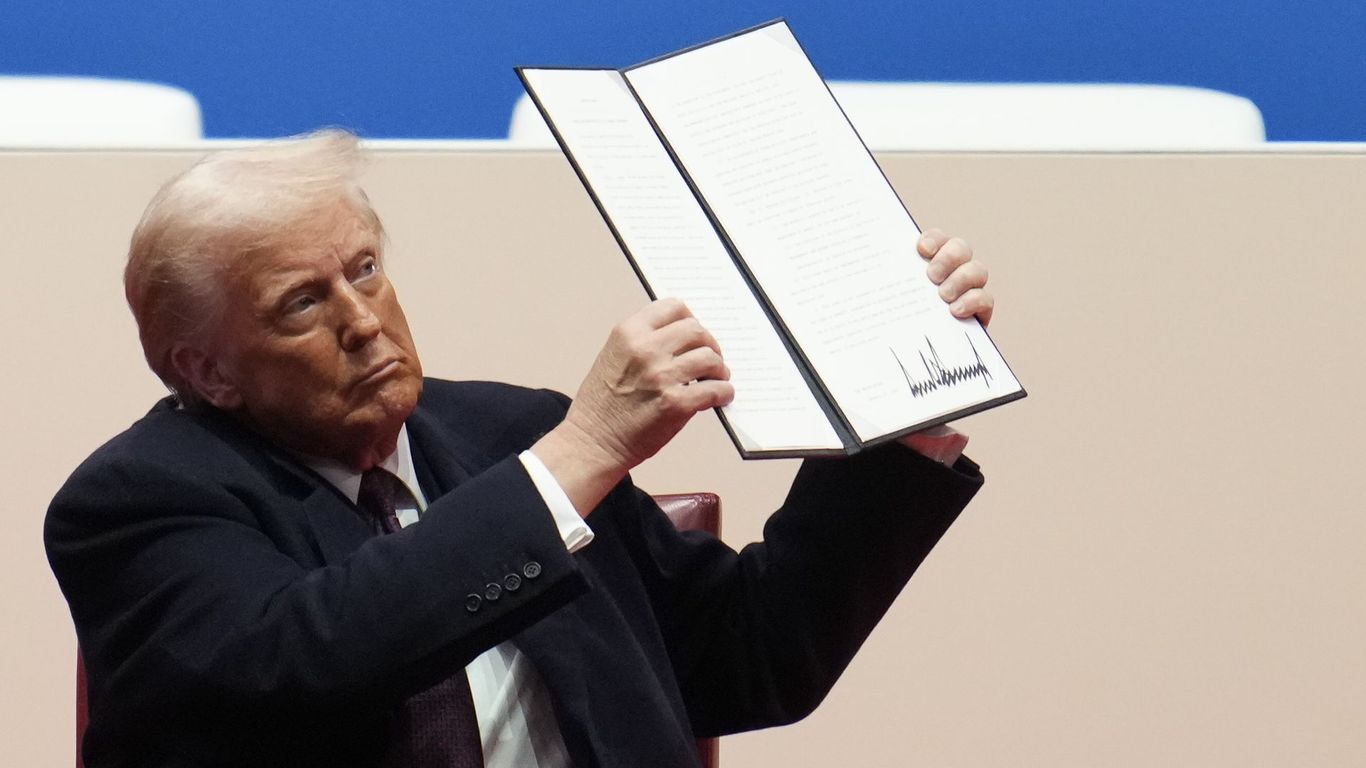On Monday, President Trump signed an executive order that effectively dismantles diversity, equity, and inclusion (DEI) initiatives within the federal government. This move has sparked widespread discussion and debate about the future of workplace diversity efforts in the U.S. government, which is the largest employer in the country. The decision is perceived as a significant pivot away from policies that have sought to promote a more inclusive environment in federal agencies. Proponents of such initiatives argue that they are essential for fostering a workforce that reflects the diverse fabric of the nation and for ensuring that all employees have equal access to opportunities. By rolling back these programs, critics fear it could lead to a less equitable workplace and undermine years of progress toward inclusivity.
The dismantling of DEI initiatives can be seen as part of a broader political agenda that prioritizes a certain ideological framework over the principles of equality and representation. Supporters of the executive order contend that these initiatives have often resulted in divisiveness and have prioritized identity over merit in hiring and promotion practices. They argue that the focus should be on individual qualifications rather than group identity, asserting that this shift could lead to a more meritocratic system within federal employment. However, detractors maintain that such policies are vital for countering systemic biases that can disadvantage marginalized groups and for creating a workplace where all employees feel valued and respected.
The implications of this executive order extend beyond the federal workforce, as the government often sets a precedent that influences private sectors and local governments. Many organizations look to federal guidelines and practices when developing their own diversity and inclusion programs. By eliminating these initiatives at the federal level, there is a concern that it may embolden other entities to scale back or abandon their own DEI efforts, potentially reversing progress made over the past several years. This could lead to a homogenization of workplace cultures that do not adequately represent the rich diversity of the American populace, ultimately affecting the effectiveness and creativity of the workforce as a whole.
As the nation grapples with ongoing social justice issues, the decision to dismantle DEI initiatives raises critical questions about the future of equality in the workplace. Advocates for diversity and inclusion argue that these principles are not merely optional but essential for fostering innovation, creativity, and a sense of belonging among employees. With the federal government setting an example, the long-term effects of this executive order will likely be felt across various sectors and may influence the broader societal discourse on race, equity, and inclusion in America. As the conversation evolves, it will be essential for stakeholders to evaluate the impact of such policy changes and to advocate for a workforce that truly represents and serves all Americans.
Trump rolls back DEI rules in the federal workforce - Axios

